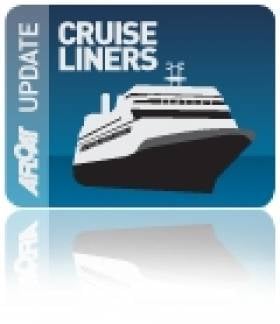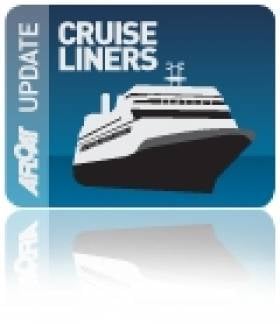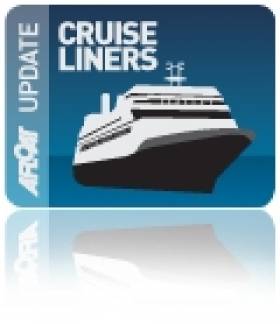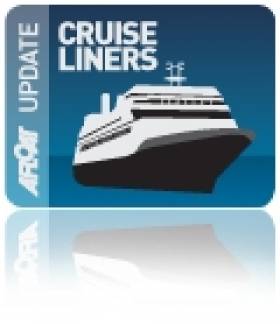Displaying items by tag: Compagnie du Ponant
Contrasting Cruiseship Callers Due Double Docking
#CruiseLiners – For the first time during the 2013 Dublin Port cruise season, two such vessels are due to dock on the same day and only hours apart, writes Jehan Ashmore.
The French mega-yacht style cruiseship Le Boreal from Caen, Normandy is scheduled to arrive first in the early hours of next Sunday. She will be followed by the Norwegian polar region cruise expedition vessel Fram with an arrival from Cork.
Sleek lined Le Boreal is operated by Compagnie due Ponant yacht cruises and the stoutly proportioned Fram is run by Hurtigruten. This operator of course is famous for providing the important Norwegian coastal voyage between Bergen and Kirkenes, beyond the Arctic circle and bordering the Russian Federation.
Among the many regions, the Fram explores the other end of the world with cruises in the Antarctic Ocean.
Dublin Port can look forward to another record breaking year with around 105 cruise calls scheduled in 2013, this compares to last year where there were 89 arrivals. The rise in the 2013 season reflects approximately an increase of 20% compared to last year.
Mega-Yacht Cruiseship Returns
#MEGA-YACHTCRUISESHIP – Nearly a year ago to her Irish debut the Le Boréal a mega-yacht cruiseship called to Dublin Port today, writes Jehan Ashmore.
The sleek sweeping lines of the 132 berth and 264 maximum capacity vessel is designed with French flair by Jean-Philippe Nuel and built with Italian expertise by Fincantieri. She is scheduled to depart from the capital tonight. For more information and photographs of the ship, click HERE.
When she entered service for Compagnie du Ponant, the only French cruiseship operator won for the Best New Ship of the Year 2010. The prize was rewarded by the European Cruiser Association for more visit www.eucras.com
Mega-Yacht Cruiseship Le Boréal Visits Dublin
At 142m long she was built by the Italian Fincantieri shipyard and can take 264 guests in 132 luxury cabins and in public spaces the interior has a distinctly French flair from the hand of designer Jean-Philippe Nuel. She is flagged in the Wallis Futuna Islands in the Polynesian French island territory in the South Pacific.
The vessel has a cruising speed of 16 knots and a crew of 139 look after her guests throughout six decks. On the top deck named Le Paris Deck an open-air bar is located aft and forward is a sun deck area. Below on Le France Deck there is a swimming pool, grill restaurant, internet station, library panoramic lounge and an adjoining open-decked forward facing terrace sited above the bridge.
On the Le Normandie DecK there is a fitness beauty corner, a massage, hair salon, leisure area and an image & photo desk in partnership with Philippe Plisson, synonymous for his dramatic scenes of Breton lighthouses. The photographer is based in La Trinité sur Mer for more click here.
The next deck is the Le Lafayette Deck which is predominately occupied by 35 Prestige staterooms each featuring private balconies and located aft is the theatre. Going down another deck is the Le Champollian Deck where there is the main lounge, shop, reception desk, excursion desk and a medical center. Finally we reach Le Liberté Deck where guests can dine at the gastronomic restaurant, the Marina.
Twenty three years ago Compagnie du Ponant was founded by her owners the CMA CGM Group, the world's third largest container shipping group. The cruise company is an integral part of French maritime heritage and owes its origins to the renowned Compagnie Générale Transatlantique French Line.
French Mega-Yacht Cruiseship Bound for Dublin Debut
Le Boréal was to make her maiden Irish call to Cobh but the capital which was also scheduled for the 10 May will instead take this honour from the one-year old ship which is operated by France's only cruise operator, Compagnie du Ponant.
The 142m long ship was built by the Italian Fincantieri shipyard won the 'Best New ship of the Year 2010' by the European Cruiser Association. She can take 264 guests in an interior which has a distinctly French flair from the hand of designer Jean-Philippe Nuel. A crew of 139 look after the running of the six-decked vessel which has 132 luxurious appointed cabins.
Late last month Le Boréal was joined by her new sister L'Austral which was inaugurated into service during a fireworks display off the company's headquarters in Marseille. Both ships made a cruise to the Frioul Islands and famous Chateau d'If and later that day their Le Levant also took part in the celebrations when the trio returned off Marseille.
The other two vessels of the five-strong fleet are the Le Ponant, a three-masted 88m sailing ship and Le Diamant (also due Dublin and Cork this season) form a fleet of bijou cruiseships which are small in size and as such can access remote and exclusive ports of call.
Compagnie du Ponant was established in 1988 and is owned by the CMA CGM Group, the world's third largest container shipping group. The company is an integral part of French maritime heritage with origins from the renowned Compagnie Générale Transatlantique French Line.
































































